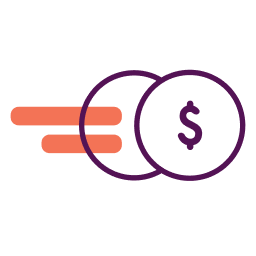Small business owners have a lot of options to consider when it comes to small business loans. From selecting a lender to determining the type of loan you need, the path to financing can be a confusing one. Of the many places you may look, the United States Small Business Administration (SBA) can be a great resource for information on loans, and specifically, different SBA loan programs that are exclusively available to small businesses.
Of those SBA loan programs, the SBA 504 and the SBA 7(a) programs are two of the most popular. Each offers unique benefits to businesses that qualify.
SBA 7(a) Loan and SBA 504 Loan Overview
Both the 7(a) and 504 loans can help small business owners to grow or maintain their business, but each differs in the purposes for which it can be used.
To start, let’s look at the SBA 7(a) loan. The SBA 7(a) loan is the SBA’s most popular loan program. If you want to take out a loan so that you can have access to working capital, purchase furniture and fixtures, make leasehold improvements, or acquire an existing business, you should consider applying for a SBA 7(a) loan.
On the other hand, if you need to finance the purchase of land or existing buildings, make improvements to existing facilities, purchase equipment, or buy ground-up construction commercial real estate, you should consider the SBA 504 loan. The 504 program is an economic development program aimed at promoting growth and job creation, thus there may be a job creation requirement that is dependent on the amount of funds received.
Under the umbrella of the 7(a) loan program is the SBA Express Loan. The advantage of the Express Loan is turnaround time — completed applications will receive a response within 36 hours, a process which usually takes weeks to months (although actual loan funding takes longer). Express loans generally follow the same standards and uses as the 7(a) loan program.
If a business owner applies for an SBA loan, it’s worth noting that these loan types are not offered directly through the SBA. Instead, the SBA works with financial institutions like banks, credit unions, and other business lenders. These preferred SBA lenders then offer SBA loans that are guaranteed by the Small Business Administration — meaning if the borrower defaults, the SBA will cover the cost, mitigating the risk to lend for these preferred SBA lenders.
SBA 504 loans are made available through Certified Development Companies (CDCs).
SBA Loan Eligibility, Terms, Fees & More
Now that you know the main difference between the SBA 7(a) and SBA 504 loans, let’s break each of these SBA loan types down further. The chart below offers a more comprehensive look at the various characteristics of each of these SBA loans:
| SBA 7(a) | SBA 504 | |
|---|---|---|
| SBA Loan Amounts | SBA 7(a) loans have a maximum of $5 million.
SBA Express loans have a maximum of $500,000. | SBA 504 loan amount has a maximum loan amount of $5 million; however there is no limit to the project size. |
| SBA Loan Rates | Both fixed and variable rates are available. Rates are subject to SBA maximums and are negotiated by the lender and the applicant. | Rates are fixed and are typically a percentage above the US Treasury market rate for 5 and 10- year loans. |
| SBA Loan Terms | Maturity terms for a 7(a) loan depend largely on the ability of the applicant to repay and the purpose of the loan. Below is a list of maximums based on purpose:
| Maturity terms for a 504 loan are available at 10 years and 20 years. |
| SBA Loan Fees | Fees are based on the guaranteed dollar amount and the maturity of the loan. These fees can be rolled into the overall loan. | Fees will be based on 3% of the debenture. These fees can be rolled into the overall loan. |
| SBA Loan Requirements & Eligibility | Businesses seeking a SBA 7a loan must meet the following requirements:
*For a full list of eligibly requirements please visit SBA.gov. | Businesses seeking a SBA 504 loan must meet the following requirements:
*For a full list of eligibly requirements please visit SBA.gov. |
Is an SBA Loan Right for Your Business?
SBA loans offer some of the lowest interest rates on business financing, however that doesn’t mean this is a perfect option for your company’s cash flow. You’ll have to meet the above requirements, and you also must have tried to use other financial resources, like personal assets, to qualify for an SBA loan.
A key component to qualifying for an SBA loan is your FICO SBSS score. You can manage your score with an add-on to Nav Prime and get on your way to qualifying.
If you’re a brand new company, consider seeking out other startup loan options and building your business credit before going through the lengthy application process associated with getting an SBA loan. Join Nav Prime to get started with business credit with up to two business tradelines to make your company more legit in the eyes of SBA lenders.
This article was originally written on May 23, 2018 and updated on January 9, 2024.




I’m interested in information about the 504 and 7a loans. With all the needed documents how long does it take to close. And can I apply for a 504 loan to have a shop built then refinance it with a 7a loan. My credit scores are 720 been in business for 5 yrs.
SBA loans can take weeks or even months to close. It depends on the lender and the type of loan. Each lender is a little different. Your credit score and time in business are good, so you may want to reach out Nav’s partner Smartbiz to see if they can help.
Which of these loans will finance the maximum amount the borrower will need the project?
I’m not sure. I understand your question. Are you looking for no money down? The SBA uses the term equity injection for down payment. Typically a 10% equity injection is required for 504 loans and 7(a) for startups and business acquisition. You likely will not need equity injection for a non-startup/non-acquisition 7(a) loan. As for maximum amount, it depends on the loan and we’ve spelled that out in the article.
Hello,
In your article you’ve stated that a person will or must have a satisfactory FICO SBSS score, to be qualify for an SBA (7)(a) loan, for small business. However, it does not stated as such in the law that a small business which set out to applying for an SBA (7)(a) loan should have a credit score.
It’s on page 252 of the 7(a) Standard Operating Procedures: i. All 7(a) Small Loan applications will begin with a screening for a FICO® Small Business Scoring ServiceSM Score (SBSS Score).
I want to apply for sba loan
Hi Tiara – A good place to start is with a Nav account. You can set one up for free then schedule a time to talk with one of our credit & lending specialists about your options.
how do i get an application form for an SBA 7(A) LOAN
Dr. Schneider – You’ll need to go through an approved SBA lender to apply. Nav partners with SmartBiz which helps match you to SBA loans (for certain types of SBA loans.) We’ve just updated our main article on 7(a) loans here.
Can I secure a SBA 504 or 7a loan for a cannabis start up company?
No.
Which of these loans could be used to purchase a franchise? To purchase the land, equipment etc?
I do not have much in personal assets but want to buy an existing companies assets. Can this be done with an SBA 7(a) loan?
Hi, I am a single mother of a 7 yr old daughter who I am trying to homeschool. I have been in the trucking business for the past 10 yrs and I have started up my old bosses company and made him millions and a few other businesses. I worked nearly 14-16 hrs a day 6 plus days a week. If I was lucky I was able to leave in 12 hrs. All while my daughter was with me. I never got paid weekly and when I finally did, I was so far behind in bills that I couldn’t catch up. I am not bad with money. I just didn’t have any to pay bills. The more I worked the more I went in debt. I was unable to keep my vehicles fixed and plated and insured so they are all in the field keeping the mice warm and fed. I need to get my bills paid and my rent to keep a roof over my daughters head for Christmas. Will be 3rd Christmas without a tree or stocking or presents for my precious daugher. It will be the 5th Christmas without presentz. It sucks! I would like to get a truck and start up my own authority and hail frieght. Also with in a year or by next summer or fall start up a discount store to help my community and a really cheap store that takes donations and sells them cheap. I need to get my bills in order and credit back. I need a loan to get a truck to start making money. And I have a friend who I know will help get drivers once we get started. She is also a single Mom. We just need some funding and also would need to know what the payback would be. She already has a business and just needs insurance to start it up. We could work from that. But I’d rather just start fresh and be my own boss for my daughters sake. Is there any hope for us?? One last thing, I don’t need a real expensive truck. Just one to get from point a to b and I also have a very dependable mechanic. Would I be able to get a loan and have say 6 months to start paying till I get started?? I’m not saying it would take that long. I just wanna start and pay bills and save what I would need to get the loan payed back asap and hopefully get my credit back.
Melissa,
The very first place I suggest you start is with a SCORE Mentor or SBDC Advisor who can help you evaluate your plans for your business and get it off to the right start. Get help from your local SCORE chapter or SBDC office. Use the SBA local assistance locator to find help in your area.
The second thing I’d suggest is that you set up a free Nav account here. It will show you business and personal credit and help you understand what financing options are available to you. It’s going to be tougher with poor personal credit. And it’s also tougher with a start-up. But you may be able to find microloans or other community development financing that could help you get started.